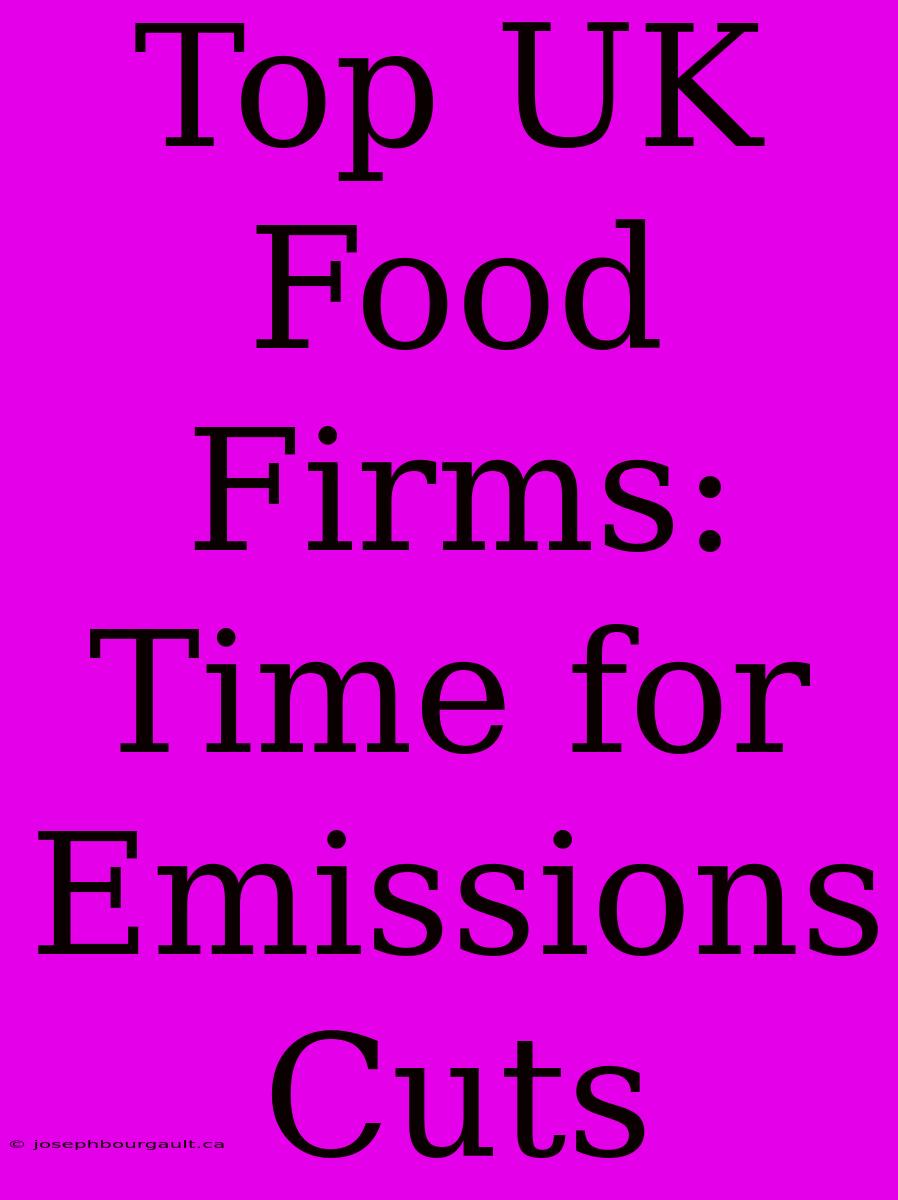Top UK Food Firms: Time for Emissions Cuts
The UK food industry is a behemoth, responsible for a significant chunk of the country's emissions. As the pressure mounts to tackle climate change, the spotlight is increasingly shining on the giants of the food sector. From supermarkets to food manufacturers, these companies hold the power to make a real difference in reducing their environmental impact.
The Scope of the Challenge
The food industry's carbon footprint is vast. From farming and transportation to processing and packaging, every stage of the food supply chain contributes to emissions. The UK's food and drink industry is responsible for approximately 20% of the country's total greenhouse gas emissions.
Here are some key areas contributing to the problem:
- Agriculture: Livestock farming, particularly beef and dairy, is a major source of methane, a potent greenhouse gas.
- Transportation: Long-distance transportation of food ingredients and finished products generates significant emissions.
- Energy Consumption: Food processing and refrigeration require significant energy, often derived from fossil fuels.
- Food Waste: Food waste decomposes and releases methane, a potent greenhouse gas.
A Call for Action: The Need for Emissions Cuts
The food industry can no longer ignore its environmental responsibility. Consumers are increasingly demanding sustainable practices, and investors are taking notice. Reducing emissions is not just an ethical imperative; it's a business necessity.
Here are some ways food companies can take action:
1. Sustainable Sourcing and Farming:
- Supporting regenerative farming: Practices that focus on soil health and carbon sequestration can help reduce emissions and improve agricultural resilience.
- Shifting to plant-based proteins: Reducing reliance on livestock farming can significantly lower methane emissions.
- Promoting local sourcing: Reducing transportation distances can help minimize emissions associated with logistics.
2. Reducing Energy Consumption:
- Investing in energy efficiency: Implementing energy-saving measures in factories and stores can reduce reliance on fossil fuels.
- Shifting to renewable energy sources: Switching to solar, wind, or biogas power can significantly reduce carbon emissions.
3. Minimizing Food Waste:
- Implementing robust waste management systems: Companies can invest in technology and processes to reduce food waste throughout the supply chain.
- Partnering with food banks: Donating surplus food can prevent waste and help those in need.
4. Transparency and Accountability:
- Reporting emissions data: Food companies should openly report their carbon footprint and progress towards emissions reduction goals.
- Engaging with stakeholders: Companies need to collaborate with suppliers, consumers, and policymakers to develop and implement sustainable solutions.
Leading the Way: UK Food Firms Taking Action
While there's still much work to be done, some UK food companies are already leading the way.
- Tesco: The UK's largest supermarket chain has committed to reducing its emissions across its entire supply chain. They are focusing on areas such as sustainable sourcing, reducing packaging, and investing in renewable energy.
- Sainsbury's: This supermarket chain has set ambitious targets for reducing its carbon footprint, including a commitment to reach net-zero emissions by 2040.
- Marks & Spencer: Known for its sustainable sourcing practices, M&S has been a leader in promoting ethical and environmentally friendly food production.
The Future of Sustainable Food
The need for emissions cuts in the UK food industry is clear. By taking decisive action, food companies can contribute to a more sustainable future, while also protecting their own long-term business interests. The shift to a more sustainable food system is underway, and it's time for all food companies to join the movement.

